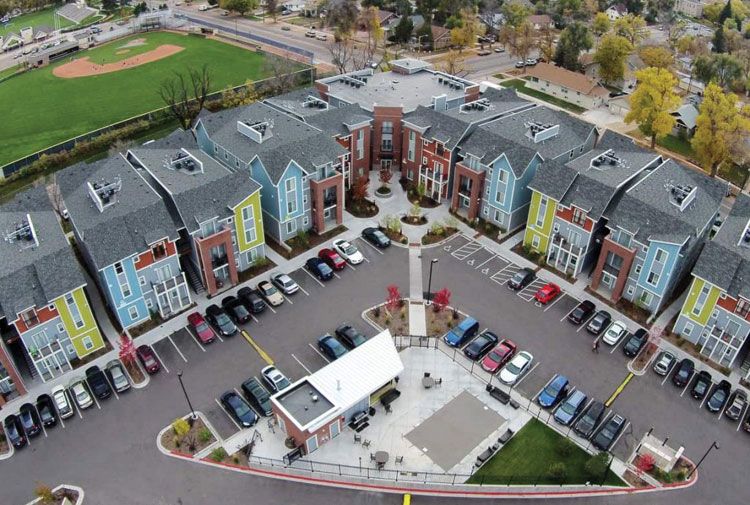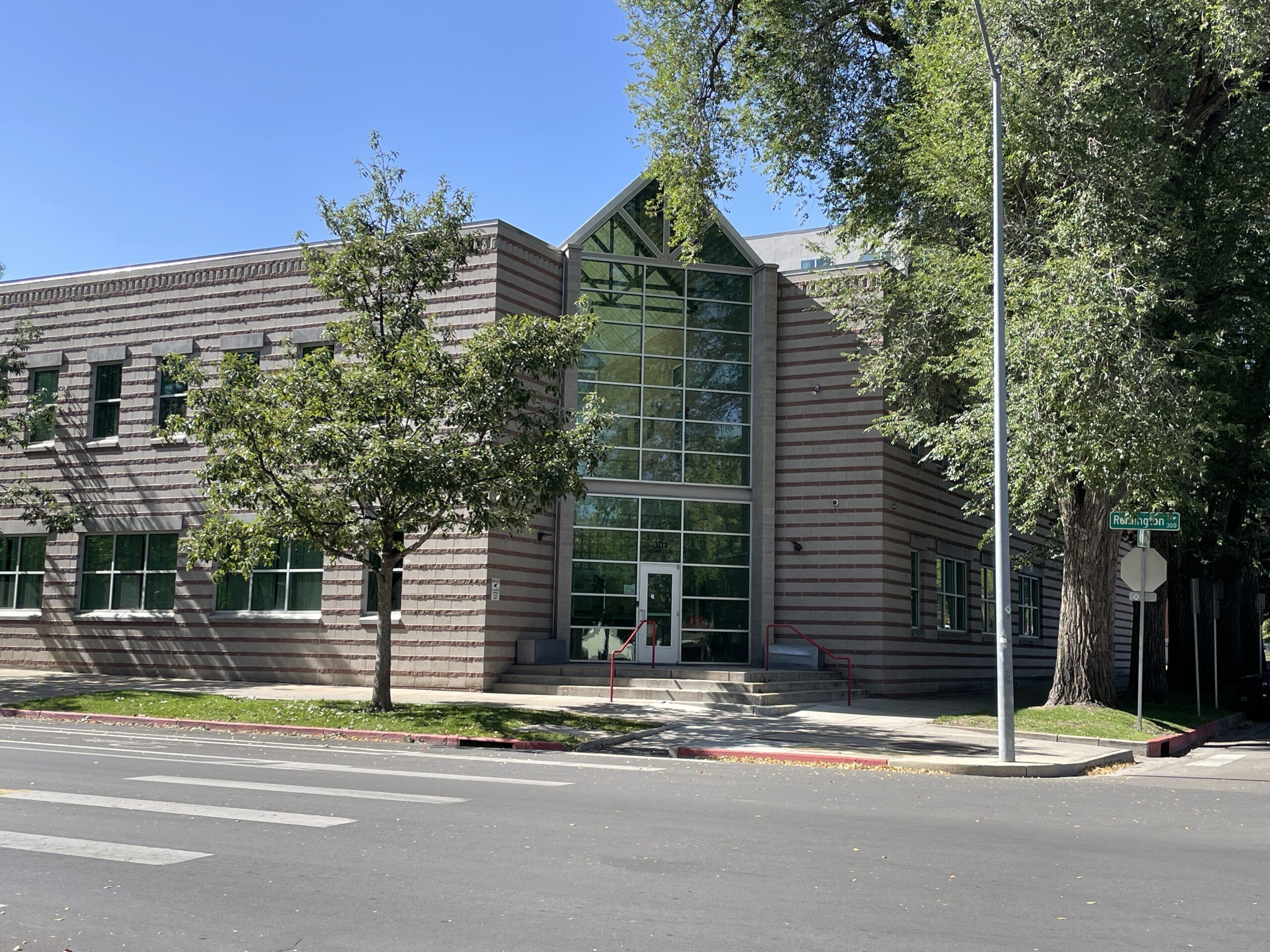Student rental segment weary after COVID throws market into chaos

The ongoing pandemic has caused turmoil in the student housing rental segment in Fort Collins, Greeley and Boulder, and the constant threat of a return to online-only instruction remains one last major wild card before universities kick off their newest year.
No immediate drops despite uncertainty
As of July 30, all three of the local state universities plan to start the fall semester with some level of in-person instruction. CU Boulder and CSU both intend to have on-campus instruction until Thanksgiving break, then close out the semester remotely. UNC plans to have its entire fall semester on-campus.
But all three of the major state colleges say they are preparing to go entirely online like they did in the spring if the pandemic forces another round of stay-home orders.
SPONSORED CONTENT
With that in mind, students may be less willing to commit to paying rent over the next several months.
College students may also be waiting to see if certain classes are in-person or online. If it’s the latter, they may opt to take those credits at their local community college and save on tuition.
Front Range Community College president Andy Dorsey speculated as much during a presentation to the Fort Collins City Council late last month, saying the college will allow class enrollments all the way up to the first day of classes on Aug. 24.
James Woody, owner of Woody Investments LLC, operates about 600 bedrooms for rent in Greeley with a majority rented by students attending the University of Northern Colorado.
Not many of Woody’s student tenants have skipped out on rent in the spring since the majority of student leases were up in May, and there wasn’t much time left in the school year.
So far, his portfolio is about 95% rented, save for a handful of college apartments and a fraternity house that the previous tenants decided to not return to due to social distancing. But in 20 years of running apartments, he’s never seen his occupancy rate so low by this point of the year.
“It’s really frustrating because there’s been no commitment, and I understand they’re trying to time it and see how this thing’s going to pan out,” he said.
Todd Ulrich, owner of Premesys Group Real Estate in Boulder, described the past couple of months as chaos.
Although a majority of leases are signed well in advance of the move-in date for the school year, he said there’s been a large demand from students who were accepted late or are transferring in. CU Boulder also shut down some dorm and on-campus apartment beds for social distancing purposes, shifting a lot of housing demand into the private sector.
He estimates around 3,000 students who were planning to live on campus were forced into the off-campus markets.
“The market changes daily,” he said. “We went from no phone calls, no emails right in the middle of the lockdown, to coming out of it, we couldn’t keep up with all of the calls and emails. And now, it’s tapered back off to what I would say are more normal levels.”
At the same time, Ulrich said he and fellow members of the Boulder Area Rental Housing Association have gotten plenty of calls from students looking to cut their leases short because of COVID restrictions.
That group’s main efforts to quell the potential loss of revenue and the possibility of legal action between landlords and tenants is to play matchmaker between students looking to rent and those trying to get out of their rents through Ralphie’s List.
Boulder was hovering at about an 8% apartment vacancy rate prior to COVID hitting the country, which Ulrich says is the historical norm. He expects that rate to be close to the historical norm or slightly lower in the fall because of the artificial demand created by CU’s partial closure of dorms, while balancing out somewhat due to students not returning to campus.
He also expects more competition for apartments in Boulder in the coming months as people seeking less dense living environments move away from the Denver metro and into the reaches of the Front Range.
“We’re seeing a pretty good influx into town, of people who don’t want to live in big cities or high rises, places that have a higher caseload,” he said.
However, that doesn’t mean Boulder landlords are looking to capitalize with marked up rents. While the members of the local rental housing association don’t share specific numbers to avoid any appearance of antitrust behavior, Ulrich said many are not raising rents or fees this year, and others have dropped rents to near or at break-even rates.
Legal questions
While the pandemic and its wide-ranging shutdowns weren’t exactly foreseeable events last fall, it’s unlikely they present a legal way to break a lease, said Kathleen Haward, director of Colorado State’s Student Legal Services office. Her office fielded the most questions about breaking leases in the spring than at any point before.
So-called force majeure clauses allow parties in a contract to suspend or end the agreement without penalty due to factors outside of their control. This is often applied to natural disasters or damage from crime, accidents or war.
Haward said most leases she’s seen tend to be more one-sided toward allowing the landlord an out if something happens to the property that’s outside of their control. Tenants usually aren’t afforded the same leeway, especially since the virus doesn’t make it impossible for someone to reasonably live in their apartment or home.
In general, it’s difficult to argue a force majeure from the tenant’s side because “the rental property is still available and the landlord is still providing its side of the bargain,” she said.
However, international students may have a more open legal argument if they come from a country that is part of a State Department-sanctioned travel ban due to the COVID situation there.
That doesn’t mean students are powerless, however. Haward is recommending students ask for shorter leases and buyout clauses in the event the fall semester is cut short or the start of the spring semester is held online.
But the virus has upended the power structures inherent in the cyclical nature of student leasing, providing both pros and cons to the renters.
“We encouraged tenants to view the market as a tenant’s market and not enter into standard leases, but many of the housing providers near campus do not have managers with discretion to make modifications to their standardized leases, and tenants are not organized enough to wield group power,” she said.
Haward also noted some landlords argue they can’t negotiate new terms with students because it would violate fair housing laws that ban preferential treatment toward some tenants that aren’t afforded to others.
Students are not considered a protected class under federal housing law.
Online classes in the fall and beyond
A resurgence in the disease that forces UNC to close is the biggest worry for Woody for his business and for the greater Greeley economy. The area already is suffering from the historically low demand for oil as travel is discouraged during the pandemic, and losing the add-on revenues when students spend money for food and entertainment will cut even deeper into the city’s economic picture.
“With the university, couple those two together and I think it’s going to be much more devastating to Greeley than it would be to most other college towns because we got a double whammy,” he said.
Ulrich estimates CU students make up around a quarter to a third of Boulder’s economy, so another period where students are sent off campus and return home to finish their studies can be a serious short-term detriment to the city.
However, he believes the entire real estate market is likely going to change over the next few years because the debate over whether working from home can be fully accommodated by employers has been settled by COVID.
“We’re able to get our business and our work done remotely with telecommuting and whatever else is needed. We don’t have to do it the old way, and that likely will also translate into things like higher education,” he said.
The ongoing pandemic has caused turmoil in the student housing rental segment in Fort Collins, Greeley and Boulder, and the constant threat of a return to online-only instruction remains one last major wild card before universities kick off their newest year.
No immediate drops despite uncertainty
As of July 30, all three of the local state universities plan to start the fall semester with some level of in-person instruction. CU Boulder and CSU both intend to have on-campus instruction until Thanksgiving break, then close out the semester remotely. UNC plans to have its entire fall semester…




